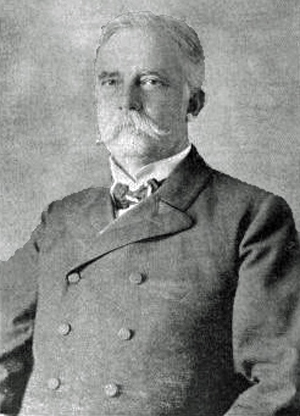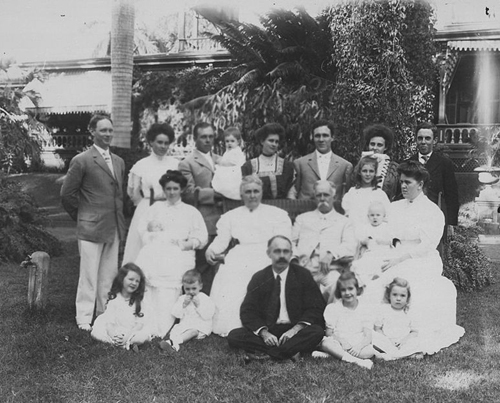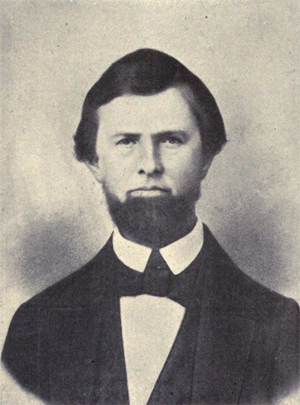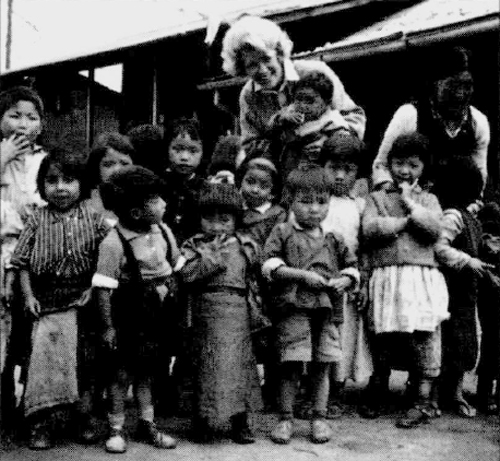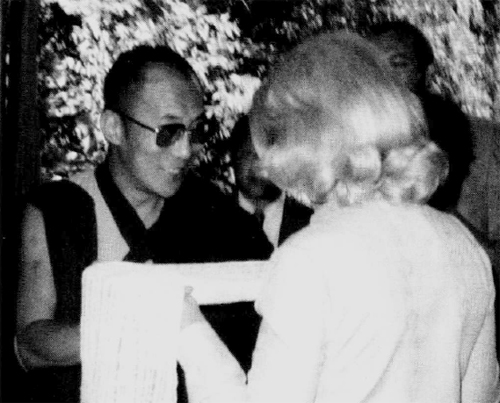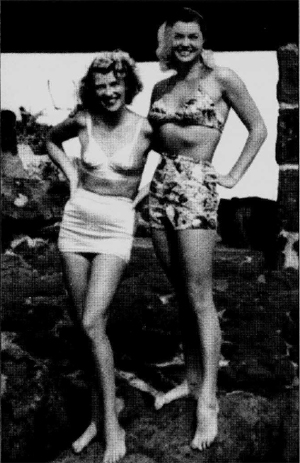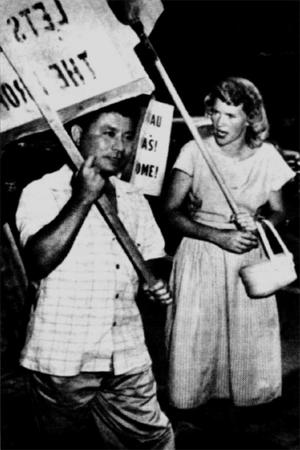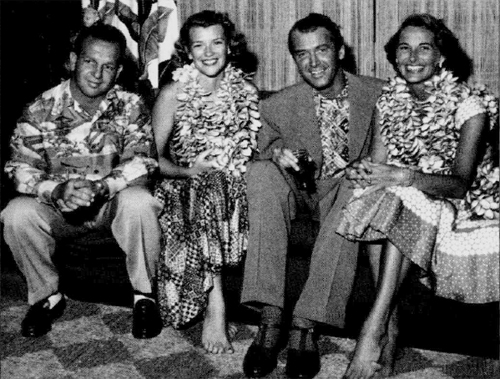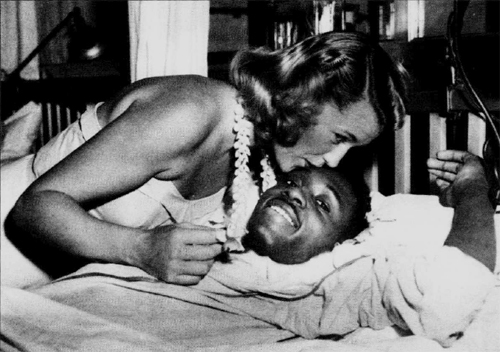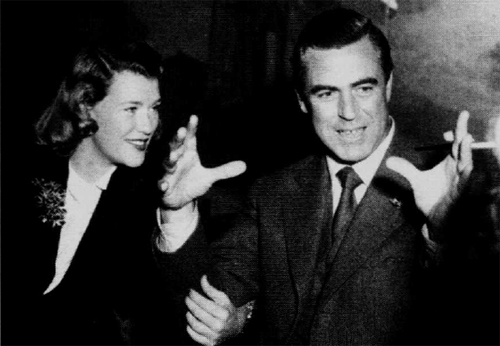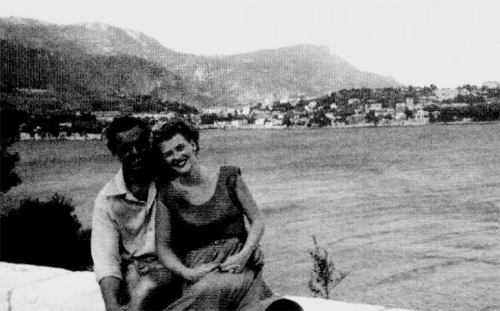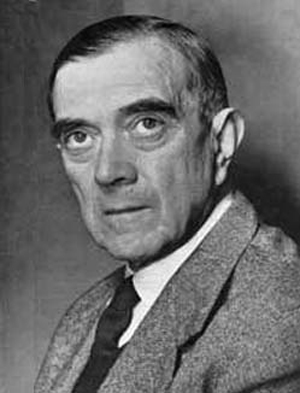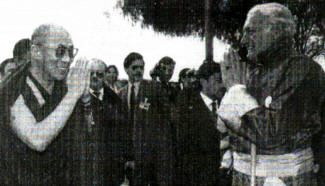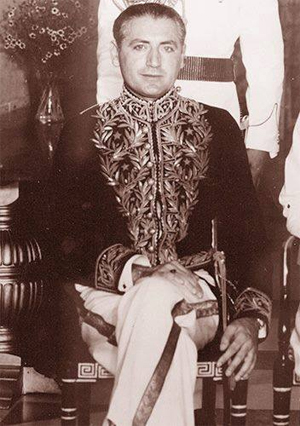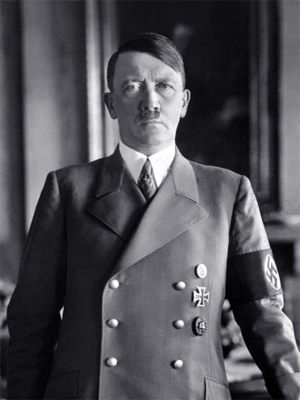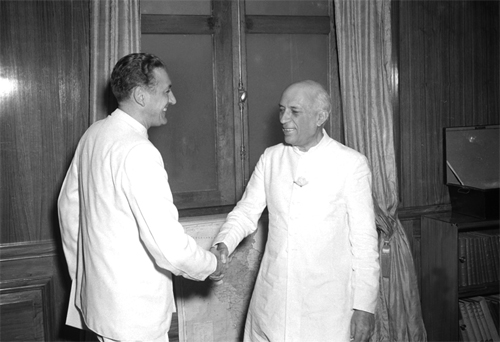by Central Intelligence Agency (CIA)
Approved for Release 2004/10/28: CIA-RDP88-01314R0003000180002-2
1972/1973
To Whom It May Concern:
This is a request under the Freedom of Information Act. I hereby request the following records:
Documents relating to or mentioning Morton Barrows "Tony" Jackson and his contacts and employment with the Agency, including but not limited to those mentioned in https://ia601504.us.archive.org/18/item ... ackson.pdf This includes previous disclosure of his employment by your Agency. His death has been widely and extensively reported. http://articles.latimes.com/1991-12-16/ ... on-jackson
I am a member of the news media and request classification as such. I have previously written featured articles on the Agency, and have a long-term contract to write the Encyclopedia of the OSS. http://andmagazine.com/us/1431865273.html
The requested documents will be made available to the general public, and this request is not being made for commercial purposes.
In the event that there are fees, I would be grateful if you would inform me of the total charges in advance of fulfilling my request. I would prefer the request filled electronically, by e-mail attachment if available or CD-ROM if not.
Thank you in advance for your anticipated cooperation in this matter. I look forward to receiving your response to this request within 20 business days, as the statute requires.
Sincerely,
Michael Best
Approved for Release 2004/10/28: CIA-RDP88-01314R0003000180002-2
Time Luncheon Guests
1:00 p.m.
3 December 1973
888 16th Street, N.W.
The following will be the luncheon guests today:
Hugh Sidey -- Host and Bureau Chief. Always been cordial, friendly and fair as far as I can figure out. He covered Kennedy in 1960; then was White House correspondent and then began writing a column on the Presidency for Life. When it folded, he took the column to Time. He appears on the Agronsky show and you may have met him when he came out with the Time writers for a briefing.
John Stacks -- He is the Washington News editor. He is the second man in the Washington Bureau; an inside desk man, I would think.
Jess Cook -- He was out here at your ONE backgrounder. We get calls from him now and then.
John Steele -- He was out here for the briefing a year or so ago. He is the magazine's senior correspondent. I gather he does corporation business, e.g., the visit of Japanese industrialists under Time, Inc. sponsorship was his baby.
John Mulliken -- He covers the White House and has been out here for a number of briefings and has been appreciative.
Jerry Hannifin -- He is the one who talked to me about the Vietnam torture story and told me that the conduct of the POW's was a reaffirmation of what kept our nation going at Valley Forge, at Cold Harbor, at Vicksburg. Hannifin is the Time man on the Watergate case, according to a memo you wrote concerning his uncovering of the name of Morton Jackson.
In 1962, Nancy [Cooke de Herrera]... married Morton Barrows Jackson.
-- Obituary: Nancy Cooke de Herrera, by Analisa Harangozo, Patch Staff
Jerry Schecter -- Diplomatic editor in Washington and a long-time friend of Bill Nelson's. Nelson has pressed him a couple of times on the sourcing of the Khruschev memoirs. Bill knows Jerry from their days in Tokyo.
8. SON OF FORMER AGENCY ASSET IS PARTNER OF BERNARD L. BARKER
Miguel A. Suarez mentioned in an earlier Watergate Incident Status Report dated 26 June 1972, has now been correctly identified as Miguel A. Suarez Sarrain. The previously reported information about his real estate partnership with Bernard L. Barker and his Republican Party activities in Florida is correct. He has not, however, been in contact with this Agency at any time, and the Agency has had no contact with his firm, Ameritas. On the other hand, his father, Miguel A. Suarez Fernandez, was [DELETE] as noted previously.
Miguel A. Suarez Sarrain was born in Cuba in about 1936, and is a United States citizen. He is married to Yolanda Suarez Sarrain, was educated in the United States, and passed the Florida Bar examinations in 1963. Prior to 1965 he was a law clerk for Attorney Ellis S. Rubin, Miami Beach, Florida. He also worked as secretary of the Pan American Drug Company in Miami, of which his father was President. Suarez Sarrain was an unsuccessful Republican candidate for mayor of Miami in 1971.
9. FEDERAL BUREAU OF INVESTIGATION INQUIRIES
The Federal Bureau of Investigation has inquired regarding the following additional individuals and activities:
A. William Marihugh
The specific reason for the FBI's interest in Mr. Marihugh was not stated. Mr. Marihugh entered on duty with this Agency on 31 March 1958. He retired under a medical disability as a GS-14 Electronics Engineer on 16 February 1972.
B. Morton Barrows Jackson
Mr. Jackson and Everette Howard Hunt are believed to have been in contact with each other during early 1972. Mr. Jackson listed Mr. Hunt as a Character Reference on his Agency employment application in August 1950.
QUESTION (to Mr. John Warner on 29 November 1972):
Details on Morton Barrows Jackson, who worked about twenty years ago with the Agency.
RESPONSE:
Mr. Morton Barrows Jackson was utilized by the Agency overseas in a covert capacity covering the period from February 1951 to approximately June 1954. He was never a Staff Employee of the Central Intelligence Agency. Although Mr. Jackson is known to have listed Mr. Everette Howard Hunt as a character reference in August 1950, we have no information on the nature or extent of their association. Attached is a memorandum prepared giving full details on the background of Morton Barrows Jackson.
On 19 August 1972 Mr. Jackson called the Agency asking how to respond to possible Grand Jury questions with respect to his connections with the Agency. He was advised to say that there had been an association during the early 1950’s but to try to refer further specific questions to the Agency. On 31 August 1972 he phoned to say he had done so, that no problems had arisen, and that he expressed appreciation.
MORTON BARROWS JACKSON
1. Subject’s name came to the attention of this Agency through the Federal Bureau of Investigation, as a possible contact of Everette Howard Hunt, Jr., on the West Coast during early 1972. (Subject, in August 1950, listed Mr. Hunt as a character reference for covert Agency employment.)
2. Subject was born on 17 July 1921 at Devils Lake, North Dakota. He attended Harvard University from 1938 to 1940 and the University of Southern California from 1946 to 1948. He was admitted to the California Bar in 1949. Subject’s legal experience includes service on the Intergovernmental Committee for European Migration, Geneva, Switzerland, from 1954 to 1957, and as Regional Commissioner of the Immigration and Naturalization Service, Department of Justice, from 1958 to 1959. Subject is a retired lieutenant commander in the U.S. Naval Reserve. He is presently a partner in Jackson, Goodstein, Kumler, Copes, Croskey and Smith, Suite 1651, 1901 Avenue of the Stars, Los Angeles (Century City), California 90067; telephone: (213) 277-0200. The firm engages in general civil and trial practice in all State and Federal Courts.
3. Subject was a covert asset of this Agency in Bangkok, Thailand, from February 1951 until January 1954, which his contract expired. He was associated then with the Intercontinental Engineering Corporation.
4. In February 1954 Subject was considered for an administrative position with an Agency-sponsored Fund in Switzerland. The International Organizations Division cancelled their interest on 2 June 1954. Subject was, during 1954, an occasional source of the Bern, Switzerland, Station, but no formal relationship existed.
MEMORANDUM FOR THE FILES
FROM: PETE KINSEY
SUBJECT: INTERVIEW OF CHARLES COLSON – JAN. 20, 1975
On January 20, 1975, Senators Weicker and Baker and A.B. Culvahouse and myself met with Charles Colson at the U.S. Courthouse in Washington D.C.
As a preliminary matter, Sen. Weicker read back the notes of the interview which he had had with Colson on January 13, 1975. With certain corrections, Colson confirmed their accuracy. Colson indicated that it was Richard Ober – the CIA liaison man to Kissinger – who received packages from Howard Hunt and passed them on to Richard Helms. Colson stated that the impeachment hearings contain certain information related to a “MR. X” and that there is an affidavit stating that Hunt was bringing Ober packages through May of 1972, which were being passed on to Helms (Bill Gill of ABC News believes that the “MR. X” is, in fact, Ober). Colson indicated that although he did not know for sure, he believed the packages passed to Ober may have contained tapes. Colson bases his speculation on two things. The first relates to an NBC interview with Bernard Barker in April of 1972. Barker described being with Hunt during an interview with an individual in Miami who had been with Castro at the time Robert Kennedy was assassinated. Hunt had a tape recorder and when Barker asked Hunt what the tapes were for, Hunt replied that they were for the CIA (Bill Gill said that Hunt replied “taping for the old company”). The second basis for Colson’s speculation related to the time when Hunt met with David Shapiro while trying to see Colson to pass on a request for money. When Shapiro would not let Hunt see…
[LINES OF TEXT MISSING]
Colson mentioned Morton Jackson again and the fact that Hunt had had breakfast with Jackson the morning of the [Dr. Lewis] Fielding break-in and that the Greenspun capes had been planned in Jackson’s home.
On the subject of Lucien Conein, Colson stated he had reason to believe that the DEA activities abroad of the type we were interested in were being handled by Conein, e.g. kidnapping, assassination.
Senator Baker queried Colson as to whether he believed Mullen and Col. was CIA propriety citing the facts that Caddy operated out of it, the firm’s main clients were Hughes, the Free Cuba Committee and Rotary International. Colson also said that Mullen and Co. hired the people the CIA wanted it to.
Colson noted that the CIA Watergate file mentions that when Bob Bennett needed more money to hire a new man, the money was paid by Hughes rather than the CIA.
In response to a question by Senator Weicker, Colson stated that the CIA broke into the Chilean Embassy in the fall of 1971 to install wiretaps. The taps were shut off during the elections but resumed afterward to monitor information relating to trade delegations coming to the U.S. The taps were removed in May of 1973 because the CIA thought Dean knew of their existence. Colson mentioned that in April of 1972, McCord had called the Chilean Embassy to get himself wiretapped.
With respect to the CIA’s relationship with ITT, Colson recounted a statement by Geneen where Geneen said that “we’re putting our money to work with your boys in Chile.” Colson believes the CIA was very important. Later, Colson said he talked with Buzardt who told him to stay away from the CIA – that you can’t tell where Hughes begins and the CIA ends and that there are some big Republicans involved. Colson said he talked to Nixon twice after that and that Nixon told him to stay out of the matter – that someone in Colson’s office was feeding information to the CIA. Colson said that all of his conversations with Nixon had been subpoenaed, but only two were introduced. All the rest were withheld.
Colson said that in his conversations with Nixon, Nixon had an obsession about Hunt. In response to Colson telling Nixon to get out the Watergate story, Nixon kept referring to the trouble with Hunt arising out of Hunt’s contacts with Ehrlichman and Colson. This conversation occurred on February 13, 1973. In an earlier conversation on June 20, 1972 when Colson was telling Nixon to expose those involved in Watergate, Nixon told Colson that “they know about Hunt,” apparently, as Colson sees it, in an effort to slow Colson down. Colson remarked that the President’s obsession about Hunt and his contacts with Ehrlichman and Colson was expressed months before the evidence shows that Nixon had knowledge of the Ellsberg break-in (March 17, 1973).
Colson recounted Bennett’s inquiry to him about finding out what Maheau did with the $50,000 that was supposed to go to Rebozo, and whether or not Maheau had pocketed the money.
[LINES OF TEXT MISSING]
… one who recommended McCord for a job at CREEP.
Colson told of a February 28, 1973 meeting at the Watergate Hotel between Bennett and Eric Isenstead. Bennett said “I will take care of Ervin if you take care of Hunt”. A record of this conversation is in the CIA Watergate File.
Senator Baker inquired as to whether Colson had any knowledge of domestic assassination operations. Colson replied that he did not know but that such operations did go on overseas.
Colson said that the CIA had been trying hard to discredit Andrew St. George – that the agency was afraid of him.
Colson said we should look into the surroundings of the death of an Italian named Sarti, who was a major narcotics trafficker shot in Mexico about two years ago. Sarti bought his way out of jail and got to Mexico where he was shot. Colson said this case will show the other half of Conein’s operation.
Colson discussed certain private firms either owned by the CIA or used by the CIA. These include:
-- Intertel, a private detective firm in Washington owned by Hughes doing work for the CIA
-- Anderson Security Consultants – CIA propriety
-- Morton Jackson’s Law Firm
There was also mention of the firm of Wagoner and Baroody which came out of the firm of Down and Roosevelt – the latter having definite CIA ties.
Senator Weicker inquired as to whether Pepsico may have firm …
[LINES OF TEXT MISSING]
bona fides established but rather needed only to make the tie office …
Colson then began listing the areas we should explore more thoroughly:
-- Richard Ober – Believes his role was critical and that he would know what was being passed between Hunt and Helms.
-- Fritz Kramer and Jay Lovestone – Lovestone ran the CIA projects for the AFL-CIO. Kramer is Kissinger’s rabbi (who is somehow connected to Lovestone – this needs further exploration with Colson).
-- Clifford Irving Manuscript – Colson said that something in the Irving manuscript threw the White House, Bennett and Hughes into a panic. Hunt and McCord were approached by Hughes’ people to steal the manuscript. Hunt and McCord said they would need $55,000 for the job. Hughes people said “too much”, so the job was never pulled off. There was speculation around the table that by the time Hunt and McCord came around with the 55k figure, Hughes people may have bought off Irving. Colson believes Bill Safire had a copy of the manuscript.
Colson mentioned that Helms had gone out of his way to get Hunt placed in a job. After Hunt went to work at Mullen, he complained that his pay was not comparable to what he had been payed at the CIA. Bennett then raised his salary to a comparable level.
Colson said Hunt’s “casing” photos of the Fielding office were processed by the CIA. The photos were given directly to Helms with Fielding’s name circled.
Senator Baker asked Colson if he knew why Hunt had stopped at the Pentagon for two hours prior to leaving from Dulles on the Fielding break-in.
Colson’s speculation that Hunt’s and the CIA’s justification for supplying the wigs and other equipment to Hunt was fictitious.
Colson said he knows that the CIA gave Hunt the name of a lock picker in January 1972, and that the CIA gave Hunt Anderson Security Consultants to use on a security job for Hughes in Las Vegas.
Colson mentioned a July 10 memo from Lakowski (phonetic) of the CIA to files. The memo stated that Bennett said that he had a backdoor contact with Edward Bennett Williams and if the CIA approves Bennett will feed information to him to get the heat shifted away from the CIA to the White House and Colson. This Memo went to Helms, whose initials appear on it. Colson’s lawyer, Ken Adams, said that Williams asked things in the civil suit depositions that he could only have learned from Bennett. For example, Adams said that Williams first question to Hunt was whether Hunt had gone to Cappaquiddick to interview DeMott. Colson had testified about this before the grand jury but does not believe Williams got it from Silbert or Glanzer.
Colson referred to a list of Plumbers activities which had been shown to him by the FBI. The memo/list was dated August 31-71 and listed the projects which were being undertaken by the plumbers. One item had been blacked out. At the point Colson’s lawyers told the FBI that Colson was a defendant in the case, the FBI withdrew the document and terminated the interview. Colson’s lawyer made handwritten notes on the list which he will supply to me.
Sen. Weicker inquired of Colson’s knowledge of meetings in Mardian’s operation in the Internal Security division at Justice. Colson believed the CIA was into the operation, particularly pre-convention time – funneling information to Mardian. Colson…
[LINES OF TEXT MISSING]
break-in. Colson said Smyth had done some debugging work for him (this may need clarification).
Colson said Seymour Hush [Hersh?] had the CIA story plus much more back in January of 1974. Hush [Hersh?] called Colson and told him that Colby had spent two hours in his office confirming everything. This was during the time of the meetings Colson was having with Haig and Buzhardt.
Colson said he could go through the Helm’s testimony at his confirmation hearings and show where he committed perjury.
Colson said he was with Kissinger on June 14, at 8:00 A.M. after the Pentagon Papers broke. Colson said his log’s show he was with Kissinger on Tuesday the 15th and he is sure he was with Kissinger on Monday. Colson said Kissinger was going through the ceiling – that Kissinger was almost irrational. Colson feels that there is something more deep and personal to Henry Kissinger than the covers which were blown by the leak. Colson also told of Kissinger’s close relationship with Rockefeller and Kissinger’s use of Rockefeller’s facilities in conducting secret negotiations. Kissinger was consulting Rocky in this area. Colson at this time was conducting domestic negotiations for Kissinger.
***
Page 3755
Senator BAKER. I have a great respect for Director Helms and if he says it was a brown wig, I believe him.
And you have identification papers; you have camera equipment; you have recording equipment; you have the processing of film; you have the making of prints; you have help in the assembling of the cables; you have your contact with General Cushman; you have Mr. Jackson, Mr. Morton Jackson, a former CIA agent whom you went to as your best friend farthest from Washington. The record is simply studded with that sort of thing.
Now, what I am really reaching for, Mr. Hunt, is a pretty important and crucial question, I judge. That is whether or not the CIA, wittingly or unwittingly, officially or unofficially, was in effect a support agency for your operation and others at the White House.
Do you care to characterize that it was or was not, under those circumstances, a support facility, in effect, for your operations?
Mr. HUNT. Well, under – certainly, the initial circumstances; yes, Senator.
Senator BAKER. Mr. Martinez was still on the payroll, I believe, as a consultant for the CIA.
Mr. HUNT. So I understand.
Senator BAKER. Were there other CIA involvements that I do not know about or I have not asked you about? Can you embellish that scenario any further?
Mr. HUNT. No, sir.
Senator BAKER. Would you if you could?
Mr. HUNT. Yes, sir.
Senator BAKER. I ask you if you had a letter of instruction on this project, which I understand to be a phrase of art in the intelligence community. Did the letter of instructions tell you what you should do if you got caught or did you have orders to that effect from anyone?
Mr. HUNT. No, sir, and by the way, a letter of instruction is only given by the Director to a chief of station, not to subordinate personnel.
Senator BAKER. But you understand that having been a chief of station?
Mr. HUNT. Yes, sir.
Senator BAKER. Did you have anything equivalent to a letter of instructions?
Mr. HUNT. No, sir.
Senator BAKER. Would you tell me if you did?
Mr. HUNT. Yes, sir.
Senator BAKER. Did Mr. Bittman tell you how he used that $156,000, how he disbursed it?
Mr. HUNT. How he disbursed it? I am sorry, I perhaps misunderstood it.
Senator BAKER. Mr. Bittman, your attorney, did he disclose to you …
***
Page 87
when he was preparing Mr. Hunt for grand jury testimony probably in April or May.
Mr. BUTLER. April or May 1973. All right. Thank you Mr. Bittman. Thank you, Mr. Chairman.
Mr. DONOHUE. Mr. Seiberling.
Mr. SEIBERLING. Thank you, Mr. Chairman. Mr. Bittman, what was the name of the attorney who referred Mr. Hunt to you as a client?
Mr. BITTMAN. Morton Jackson
Mr. SEIBERLING. And he was from Los Angeles?
Mr. BITTMAN. Yes, sir. He’s a personal friend of Mr. Hunt’s, represented him in the capacity as an attorney and as a member of a law firm. I don’t know how big it is out there. I didn’t meet him. I didn’t know him when he called me.
Mr. SEIBERLING. Do you know how much pension Mr. Hunt received from the CIA?
Mr. BITTMAN. No, sir; I do not.
Mr. SEIBERLING. Based on your observations of Mr. Hunt would you consider him to be an intelligent person?
Mr. BITTMAN. Yes, sir.
Mr. SEIBERLING. Would you consider that he had a reasonably or had a reasonably sophisticated perception of the things that motivate other people?
Mr. BITTMAN. I am not sure I understand that question.
Mr. SEIBERLING. Well, was he reasonably sophisticated about human nature?
Mr. BITTMAN. No, sir. Mr. Hunt was an operative and by operative I mean if he was given an order by a superior he would do it regardless of what it was.
Mr. SEIBERLING. Well, that isn’t quite the point of my question. My point is did he understand what motivates people?
Mr. BITTMAN. I just don’t think I understand the question. I don’t think I can answer it. I’m sorry.
Mr. SEIBERLING. I see. All right. I yield my time to M. Saranes.
Mr. SARBANES. Mr. Bittman –
Mr. BITTMAN. I will be happy to answer it, Congressman, if you can rephrase it again. I am not trying to avoid it.
Mr. SEIBERLING. Well, my only question was was he reasonably conversant with human beings so that he would understand –
Mr. BITTMAN. Well, he was conversant with human beings but he has lived a very bizarre life with the CIA for 21 years involved in covert activities so that’s all I can say.
Mr. SEIBERLING. Are you saying he didn’t have dealings with other people?
***
Page 9348
Mr. ARMSTRONG. What was the purpose of your trip in January of 1972?
Mr. HUNT. I am sure from that date that that was exclusively concerning the San Diego site or the forthcoming Republican convention.
Mr. ARMSTRONG. Was that the occasion of the contact with Mr. – what was his name? – Mr. Winte?
Mr. HUNT. I don’t know. We were out there pretty frequently. I wouldn’t think that that was it. I think the contact with Mr. Winte came later. If we could find out, for example, when Senator Muskie withdrew, we would know when the cutoff point was.
Mr. ARMSTRONG. Well, on that occasion you were registered as being – Mr. Liddy was registered – Mr. Leonard was registered as being from Hughes Tool Co.
Mr. HUNT. Well, this was probably not the only occasion when we used that leased wire.
Mr. ARMSTRONG. To make arrangements?
Mr. HUNT. Yes. Let me say this; we always got better accommodations when Hughes Tool made accommodations for us.
Mr. ARMSTRONG. You were back out there again February 19 or February 17, 1972. Do you recall the specifics?
Mr. HUNT. I don’t recall the specific purpose, no, sir. There was at least one occasion when Mr. Liddy told me that he had to go out to California and would I like to come along for the ride – expenses paid. And I said, “Sure.” That might have been the time.
Mr. ARMSTRONG. Are you aware of anyone that has done any clandestine work for the Hughes Tool Co.
Mr. HUNT. No, sir, other than Intertel.
Mr. ARMSTRONG. Other than Intertel in their paid capacity?
Mr. HUNT. I wouldn’t know of any, no, sir.
***
EXCERPTS FROM HEARING OF SEPTEMBER 11, 1973
Present: Terry Lenzner, assistant chief counsel; Scott Armstrong, investigator; and H. William Shure, assistant minority counsel; Sidney Sachs, counsel for Mr. Hunt.
Mr. ARMSTRONG. Was Mr. Morton Jackson aware of the nature of your business with Mr. Winte in Los Angeles?
Mr. HUNT. No.
Mr. ARMSTRONG. Or the fact that you had business with Hughes Tool Co.?
Mr. HUNT. No. I had no business with Hughes Tool Co.
Mr. ARMSTRONG. Had you projected business with Hughes Tool Co., that is had you hoped to do business with Hughes Tool Co.?
Mr. HUNT. I do not know that I did. I think that is a premise I would object to.
Mr. ARMSTRONG. Well, consulting with the Hughes Tool Co.?
Mr. HUNT. I would again reject that assumption, Mr. Armstrong.
Mr. SHURE. Do you have any relationship with the Hughes Tool Co.?
Mr. HUNT. I had been introduced to Mr. Winte, who is the chief security officer for the Hughes Tool Co. I had some conversation with him.
***
Page 3690
16.3 E. HOWARD HUNT TESTIMONY, SEPTEMBER 24, 1973, 9 SSC 3690
Mr. DASH. Now, did you hear from Mr. Liddy during this period of time?
Mr. HUNT. What period of time?
Mr. DASH. Shortly after, around June 19 or around that time?
Mr. HUNT. Yes, sir, I did.
Mr. DASH. What, if anything, did he tell you?
Mr. HUNT. Toward midday on the 19th, I got a telephone call from him at my Mullen Co. office saying that he needed urgently to meet me. We met at the corner of the USIA building, which I believe is at 17th and Pennsylvania Ave. We met, walked around the block. During the course of the conversation, he told me that it was necessary for me to get out of town, that “they” wanted me to get out of town.
Mr. DASH. Did he indicate who “they” were?
Mr. HUNT. Not at that time.
Mr. DASH. Then, was it a fact that that particular order was rescinded?
Mr. HUNT. He told me that it was.
Mr. DASH. Now, in fact, you did leave Washington, did you not?
Mr. HUNT. I did.
Mr. DASH. And did you ultimately go to California?
Mr. HUNT. I did.
Mr. DASH. At that time, did you make arrangements to obtain Counsel?
Mr. HUNT. I obtained local counsel in California, but not Washington counsel.
Mr. DASH. Well, in California, who did you meet, what California counsel?
Mr. HUNT. I was staying at the home of an attorney, an old friend named Morton B. Jackson. Mr. Liddy appeared out there unannounced on June 21. I reiterated my request to him that he or somebody obtain counsel for me in the Washington area. Mr. Liddy gave me $1,000 and said, this will help with Jackson.
I thereupon gave the $1,000 in cash to Mr. Jackson, retaining him as my counsel on the west coast.
Mr. DASH. And did Mr. Jackson refer you to any Washington lawyer?
Mr. HUNT. In due course, he did.
Mr. DASH. Yes, and what lawyer was that?
Mr. HUNT. He referred me some time later to two attorneys, neither of whom were known to, I believe, either Mr. Jackson or myself. Simply through an alphabetical process, I decided to retain, to inquire of Mr. Bittman whether or not he would be interested in representing me.
Mr. DASH. And did you retain Mr. William Bittman?
Mr. HUNT. I did.
Mr. DASH. And when did you first meet Mr. Bittman in Washington?
Mr. Hunt. On the night of July 3.
Mr. DASH. What was your understanding, Mr. Hunt, concerning legal fees and support of your family that you would receive? What general understanding did you have?
Mr. HUNT. At the time, Mr. Liddy appeared at the home of Mr. Jackson on June 21, I raised the question with him, as I had with…
(208)

